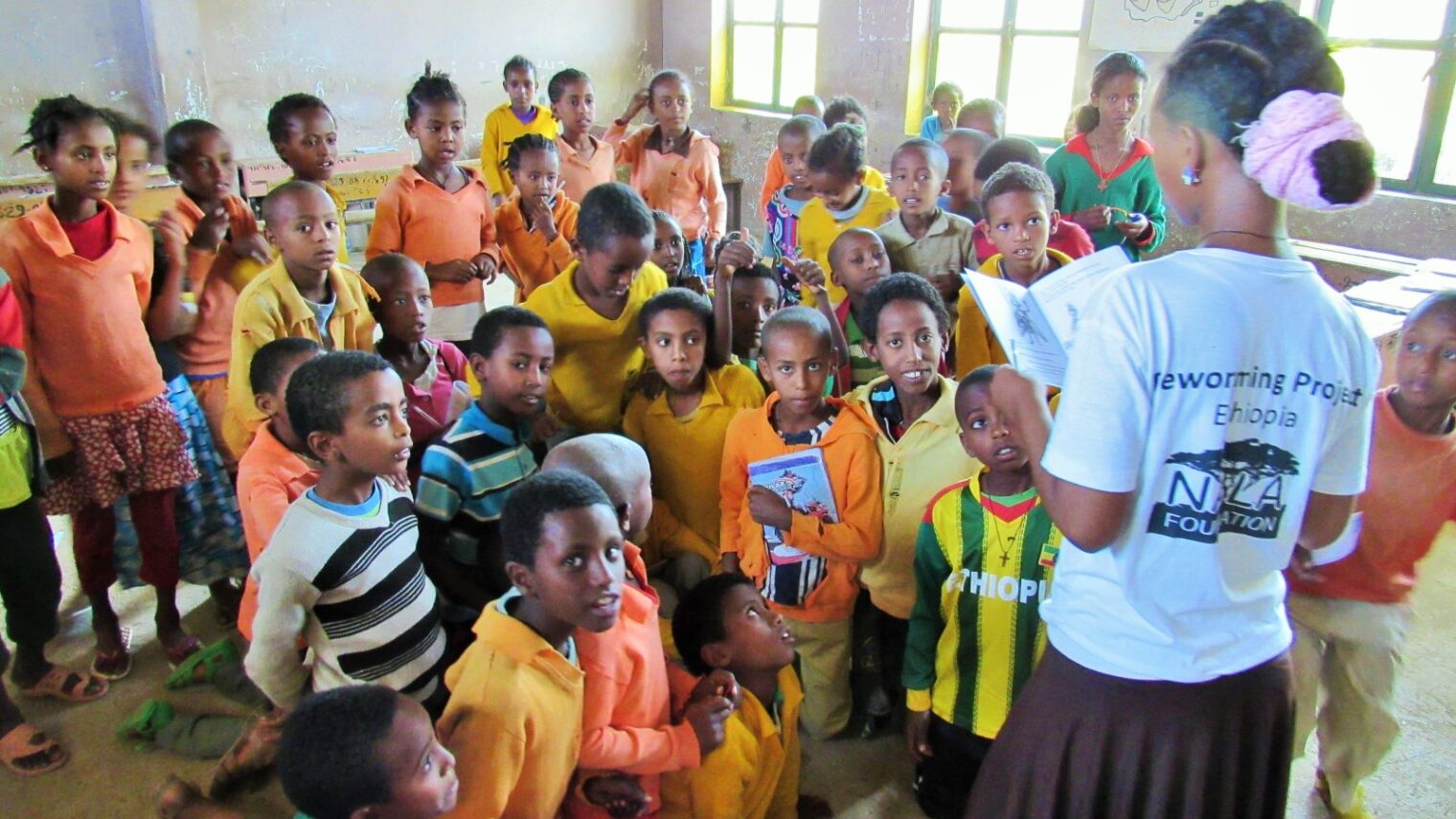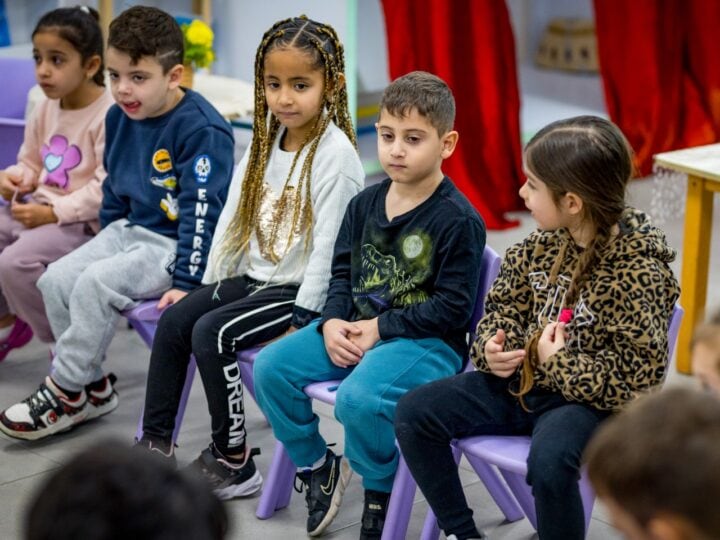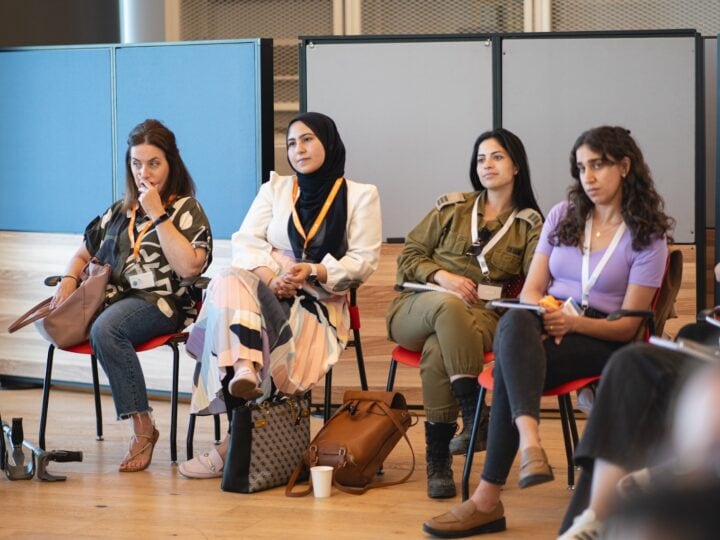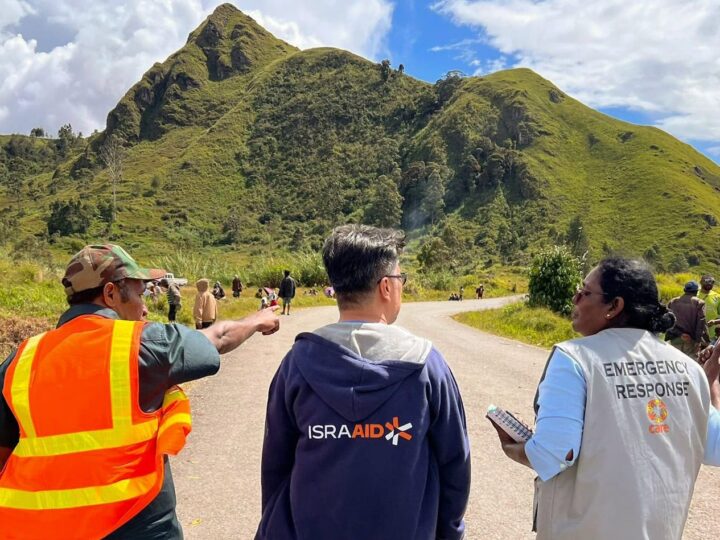More than 80 percent of schoolchildren in the Bench Maji zone of southwest Ethiopia are affected by schistosomiasis, commonly known as “snail fever.” The disease is caused by parasitic flatworms and can infect the urinary tract and intestines.
Schistosomiasis is treatable with medication and changes in infrastructure and behavior, such as the availability and use of clean water and toilets. Getting that combination into rural Ethiopia has been a decade-long challenge for the NALA Foundation.
This week, NALA, which was founded by renowned Israeli immunologist Dr. Zvi Bentwich, signed a three-year partnership with pharmaceutical giant Merck, which has donated more than 19 million praziquantel tablets in Ethiopia since 2007, helping some seven million children to fight the disease.
The agreement acknowledges that meds alone cannot stop the spread of schistosomiasis.
“It took us 10 years to develop a model of behavioral change,” Bentwich tells ISRAEL21c. But once the model was in place, it was Merck that came knocking on the door.
“They said to us, ‘We are now convinced that just giving medication is not enough. We have to combine drug administration with health education,’” Bentwich explains.
The agreement with Merck includes a critical third party: The Ethiopian Federal Ministry of Health, which is taking NALA’s behavioral model nationwide.
“We will eventually be all over the country,” Bentwich says. “That’s hundreds of millions of people in Ethiopia. Eventually this will expand to other countries.” Cameroon looks to be next.
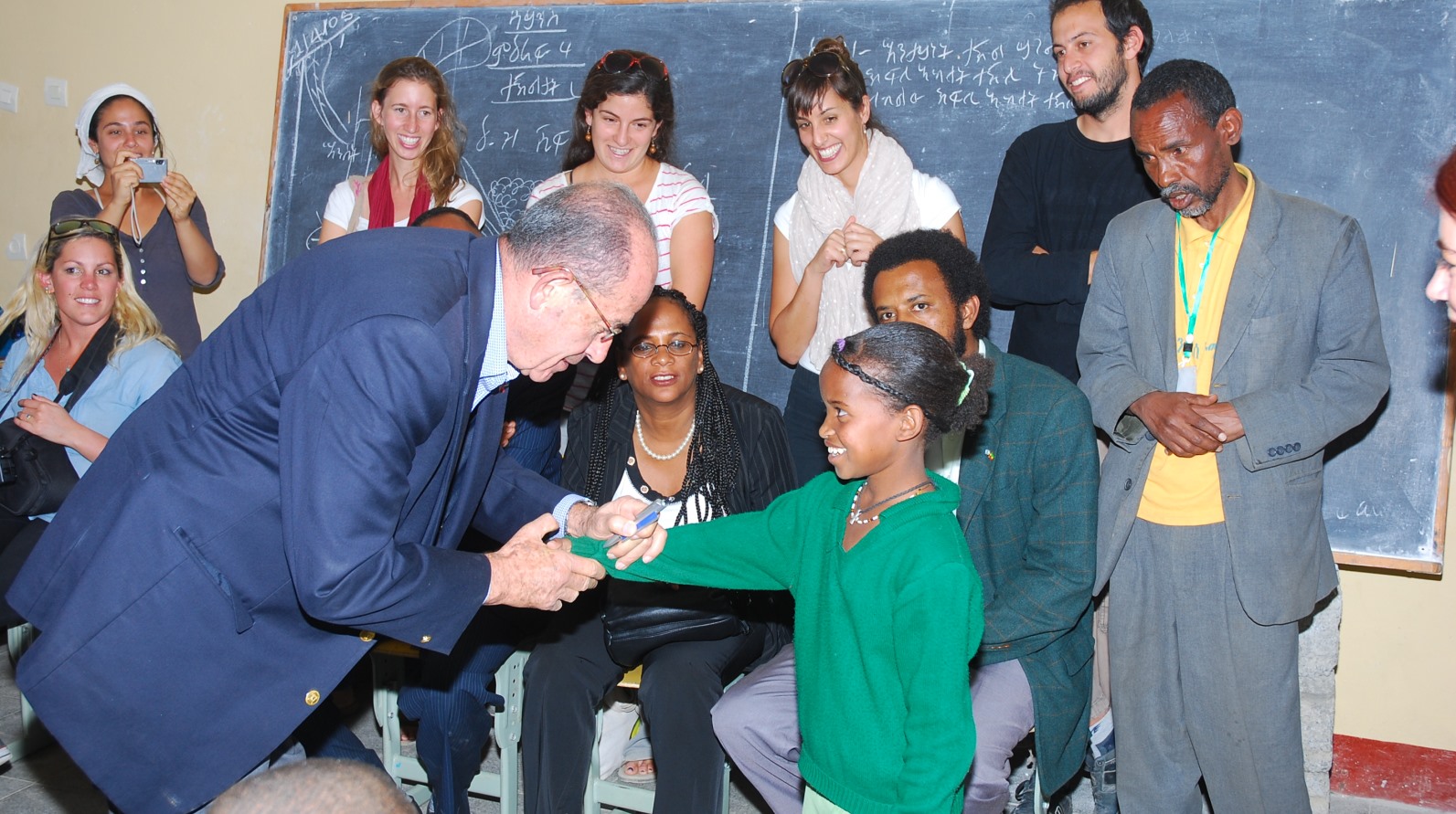
NALA’s behavioral approach may sound obvious – it involves such basics as teaching children to wash their hands, use the toilet rather than the field as a bathroom and not to expose themselves to dirty water – but to create lasting change, all of society needs to be recruited to the mission.
“The teachers can teach the children, but the children won’t pass the message by themselves, we found – they don’t have that persuasive element,” Bentwich explains. “So we had to involve the parents directly as well as organizations such as the Women’s Development Army.” The latter is a network of laywomen who take on community health issues across Ethiopia. NALA has also recruited college students volunteering to ensure the messages stick.
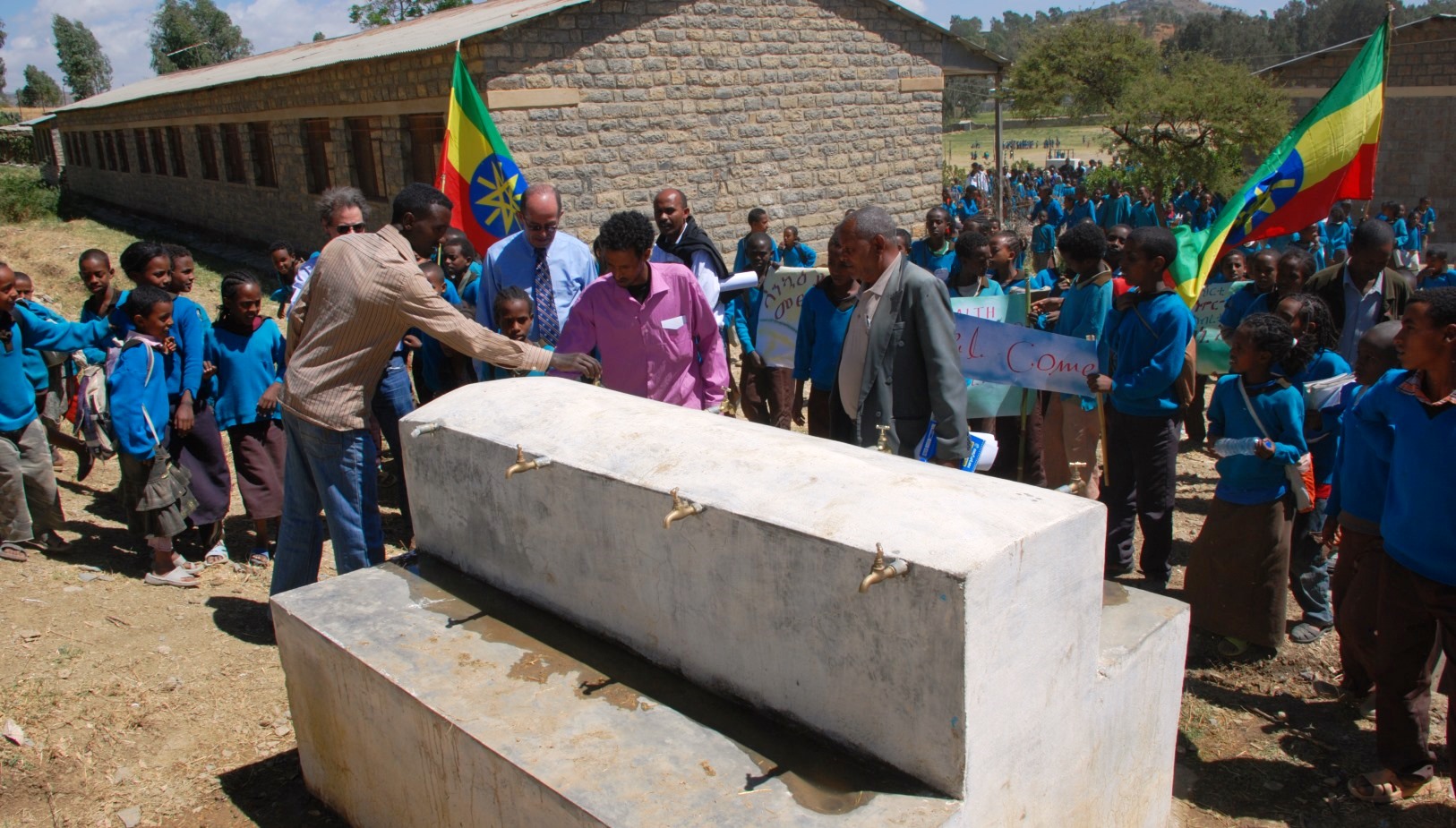
“It’s a holistic, integrated approach where we serve as a catalyst,” Bentwich stresses. “We don’t do it for the local community. We help them to help themselves.”
Why do the teachers, parents and Women’s Development Army need an Israeli “enzyme” to act as such a catalyst?
“Ethiopia is a very structured society,” Bentwich explains. “People do what’s expected. They lack the flexibility of innovation.”
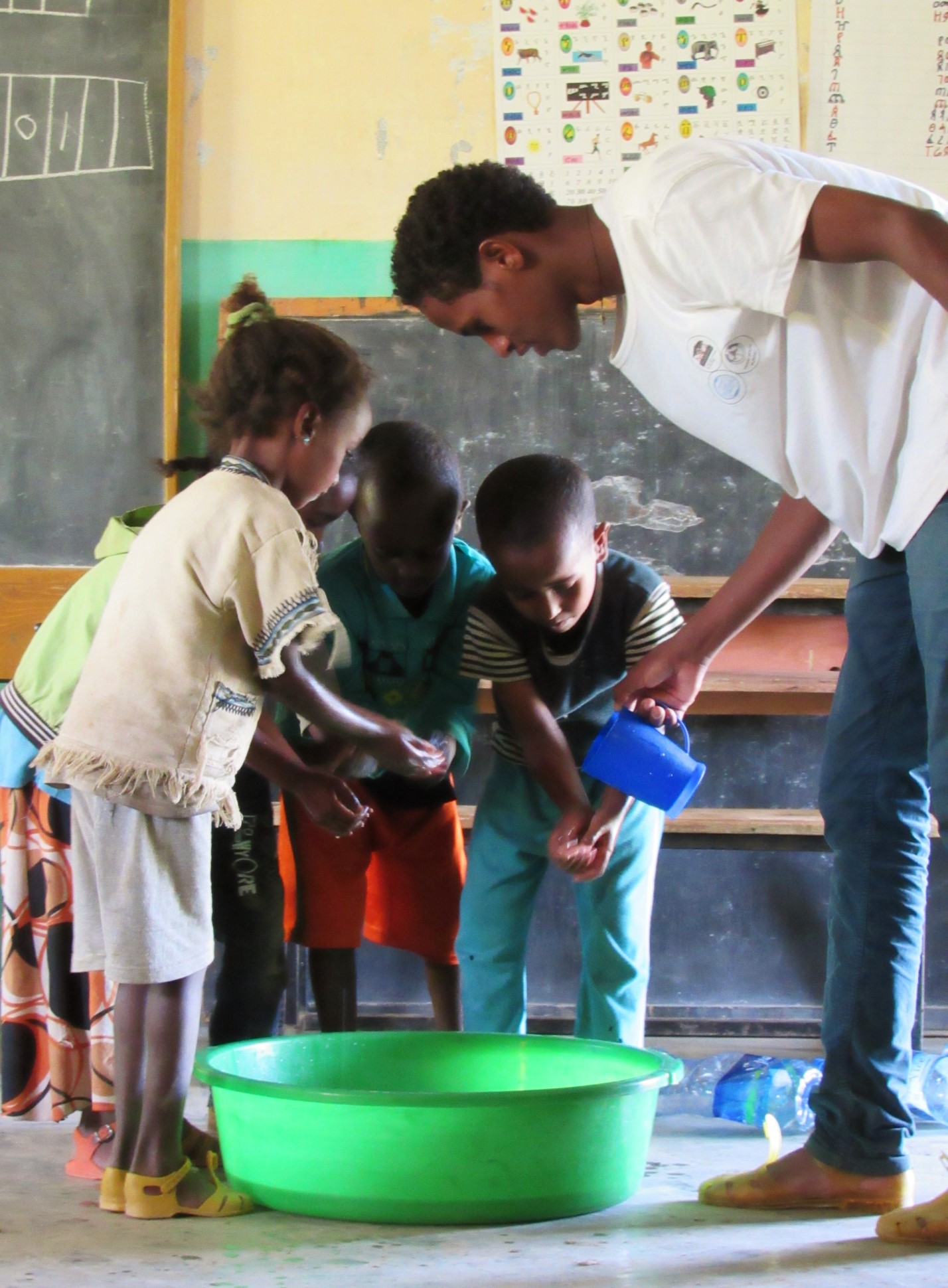
Bentwich gives a small example – repurposing plastic cans collected from the street to use as clean washing cups – as the kind of out-of-the-box thinking the Israeli team came up with.
There’s also a difference in communication style. “One thing that’s typical about Israelis is that we speak very bluntly,” Bentwich says. Ethiopians are less direct.
Behavior change alone won’t halt the spread of schistosomiasis. Water tanks and clean toilets need to be built – and that takes money. “We can’t support it entirely from the outside,” Bentwich says. So each school is required to donate 30 percent of the cost. “As poor as they are, it’s a sign of their commitment.”
Neglected tropical diseases
NALA is not just interested in stopping schistosomiasis. The “N” in its name stands for NTD – neglected tropical diseases. (The other letters represent “advocacy,” “learning” and “action.”)
NTDs are typical in countries where clean water is hard to get. And while much attention has been given to treating AIDS, tuberculosis and malaria in developing nations, not enough budget and attention has been given to diseases like schistosomiasis or to trachoma, a bacterially spread eye disease.
NTDs “affect a quarter of the world’s population,” Bentwich points out. “Over a billion people suffer from parasites.”
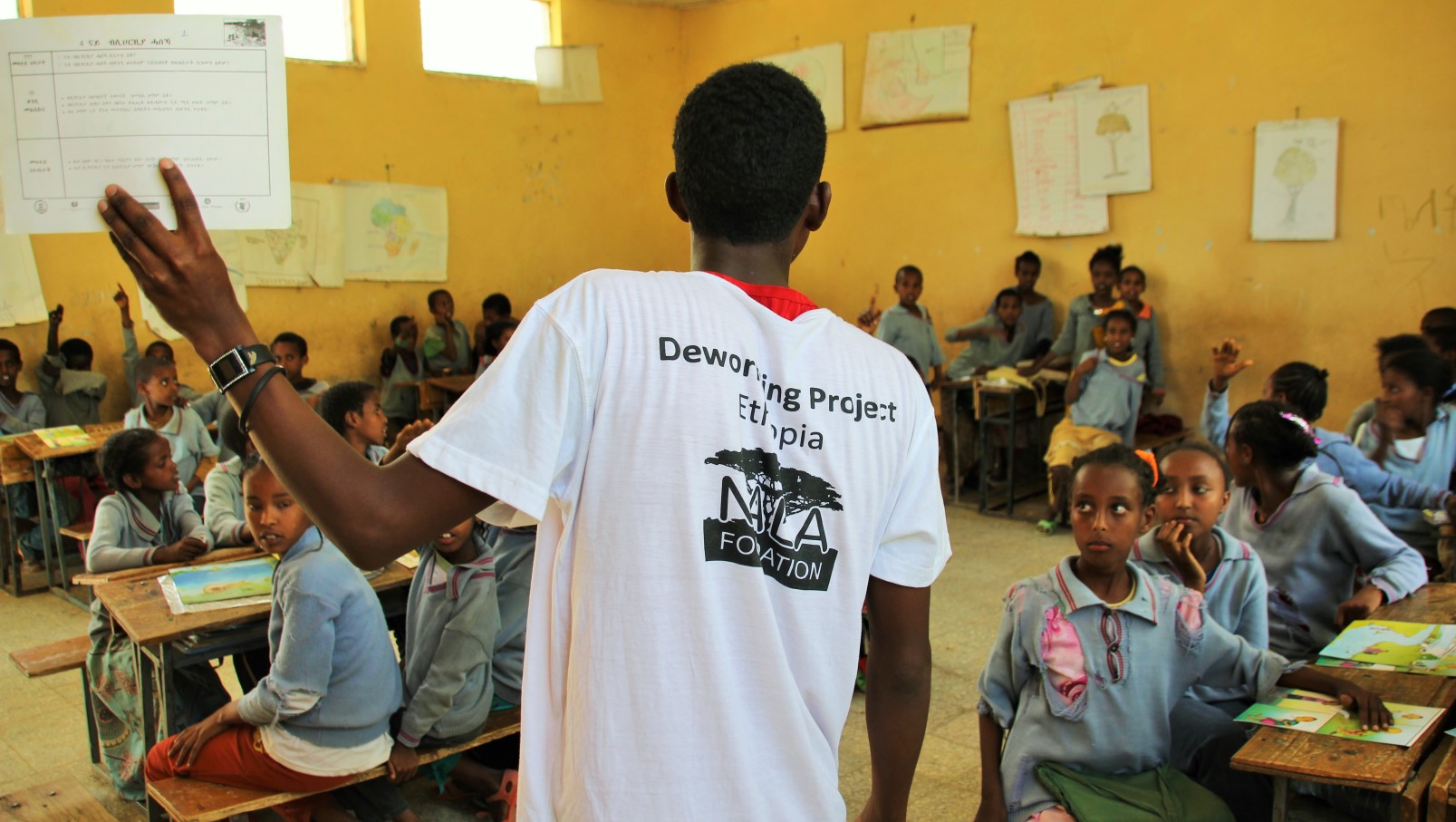
Bentwich, an HIV specialist by training, was one of the first doctors in Israel to deal with the disease-causing virus. And he noticed a correlation between intestinal parasites and HIV.
His research revealed that if the same intestinal parasites behind many NTDs are eradicated, the likelihood of HIV infection drops dramatically as well. He started NALA because he felt he could no longer sit back and continue exclusively in research.
“I grew up in a family before tikkun olam [the Jewish concept of ‘repairing the world’] was a buzzword,” Bentwich tells ISRAEL21c. “But tikkun olam was very much a mission in our family. I volunteered very early on as a student. So I feel that it’s kind of an obligation.”
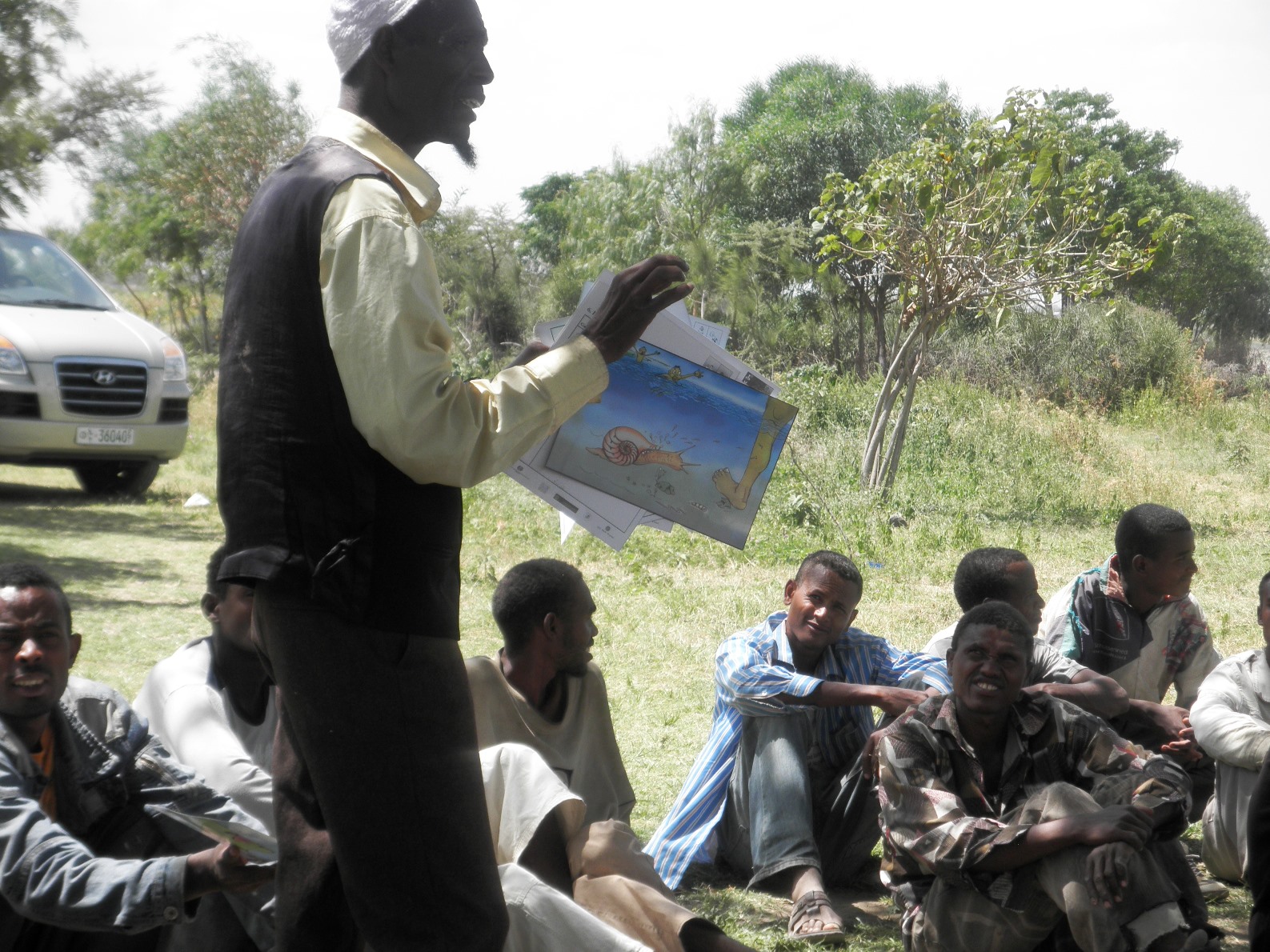
Bentwich still sees a few patients in his role as the head of the Center for Emerging Tropical Diseases and AIDS at Ben-Gurion University of the Negev. He is a past chairman of Physicians for Human Rights in Israel and received a Lifetime Achievement Award from the Israeli Ministry of Health in 2011.
Today, NALA has 20 workers in Ethiopia and five in Israel, including Michal Bruck, who took over as CEO so that Bentwich can concentrate on fundraising and generating awareness for NALA’s activities. He has been to Ethiopia 20 times.
With Merck’s medication, the Ethiopian government’s involvement and NALA’s behavioral change “best practices,” Bentwich believes the scourge of schistosomiasis can be eradicated.
“We used to have it in Israel; we don’t anymore. It doesn’t have to persist,” he says. “If we kill the parasite and the reservoirs in which it lives, it will disappear.”




